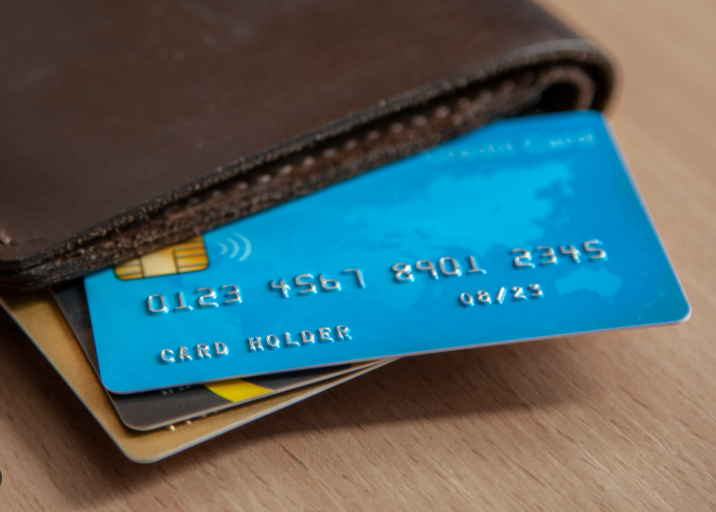
Rebuilding your credit score is a gradual process that hinges on demonstrating responsible debt management. Surprisingly, opening and utilizing a new credit card can expedite the enhancement of a low credit score, despite seeming counterintuitive.
Unfortunately, it’s relatively easy to obtain new credit cards even with a poor credit history, given the competitive landscape of the financial services sector. However, this accessibility has led to some predatory practices. Carelessness in selecting a card could result in accumulating debt with high spending limits and excessively high interest rates, complicating your ability to manage your financial obligations.
A more prudent approach involves obtaining a credit card tailored for individuals with impaired credit scores, often secured by a deposit. This deposit acts as a form of collateral, providing the financial institution with recourse in case of default. While these cards typically offer lower credit limits, they serve as a safeguard against overspending. By using the card regularly, making timely payments, and exercising responsible usage, you can expect to witness improvements in your credit score within a few months.
Credit One Bank Platinum Visa
Designed for individuals with credit scores ranging from 560 to 850, the Credit One Bank Platinum Visa card stands out as one of the few options on the market allowing enrollment with a co-signer. This unique feature can enhance your chances of approval. Moreover, the card offers cashback rewards, granting one percent returns on all purchases. Additional benefits include automatic reviews for credit limit increases and active monthly reporting of payments to credit agencies by Credit One Bank.
Users of this card have expressed high satisfaction, leading to some of the most positive customer reviews among credit-rebuilding cards we researched.
However, it’s important to note a couple of minor drawbacks:
- Your interest rate and annual fee depend on your current credit score.
- These terms may adjust negatively with a lower rating.
Present rates range from 20.24 percent to 26.24 percent.
Capital One Secured Mastercard

Designed for individuals with bruised credit scores that haven’t reached bankruptcy status, the Capital One Mastercard offers a variable annual percentage rate peaking at 26.99 percent. Notably, it doesn’t burden users with annual fees.
To qualify for this card, you must possess an existing savings or checking account, potentially excluding those with severely tarnished credit histories. However, if you meet the criteria, the benefits are considerable.
Initially, the secured card provides a credit limit starting at $200, with the option to deposit as little as $49. Furthermore, you can pay the deposit in multiple installments, easing the financial burden of obtaining the card.
Moreover, Capital One may review and potentially increase your credit limit after you complete your first five payments on schedule, rewarding responsible usage.
Armed Forces Bank Credit Builder Secured Visa
The Credit Builder Secured Visa from Armed Forces Bank comes with a distinctive perk: cardholders can incrementally increase their credit limit by making additional deposit payments in $50 increments. Upon opening the account with a $300 deposit, you receive a corresponding $300 limit, which can be augmented over time while maintaining a good account standing. Featuring a variable interest rate peaking at 23.24 percent, this rate is reasonable within the low-credit market segment.
The only drawback is the $25 annual fee. However, this is balanced by the fact that your deposit accrues interest unless the bank needs to utilize it to cover a defaulted balance.
Discover It Secured

The Discover It Secured card is feature-rich, making it a top choice for consumers aiming to rebuild their credit scores. Here are some notable features:
- No annual fee.
- Two percent cash back on gas and restaurant purchases, up to $1,000 per financial quarter.
- Unlimited one percent cash back on all other transactions.
- A 10.99 percent interest rate on balance transfers for up to six months.
- Discover automatically reviews your account after eight months and may offer you an unsecured card if you’ve managed your account responsibly.
However, there are two drawbacks to consider. First, you need to deposit an amount equal to your initial credit limit from an established bank account. If you don’t have a bank account, you won’t qualify for this card. Second, while Discover is expanding its merchant acceptance, it’s not as widely accepted as Visa or Mastercard, potentially limiting your usage options.
DCU Visa Platinum Secured Credit Card
For individuals managing heavy debt loads, paying off their credit card balance in full every month may not always be feasible. In such cases, the DCU Visa Platinum Secured card emerges as an excellent choice. It offers a low variable interest rate capped at 13.75 percent, which is approximately half the standard rate for secured credit cards. Moreover, it boasts additional benefits like no annual fees, complimentary cash advances, and free balance transfers.
The only caveat is that applicants must be members of the Digital Federal Credit Union to access this card. While membership eligibility is relatively attainable, it does require an extra step to leverage this highly regarded offer.
In Conclusion

Understanding how to navigate the credit card market is crucial for making a savvy choice that aligns with your credit improvement goals. While unsecured cards may initially appear advantageous for bypassing deposit requirements, they often come with higher interest rates and fees that offset any perceived benefits.
Typically, opting for a secured card is advisable until your credit rating progresses to a level where you qualify for an unsecured card without excessive fees, high interest rates, or other limitations. Most secured cards are accessible to individuals with a source of income and no bankruptcy history.
